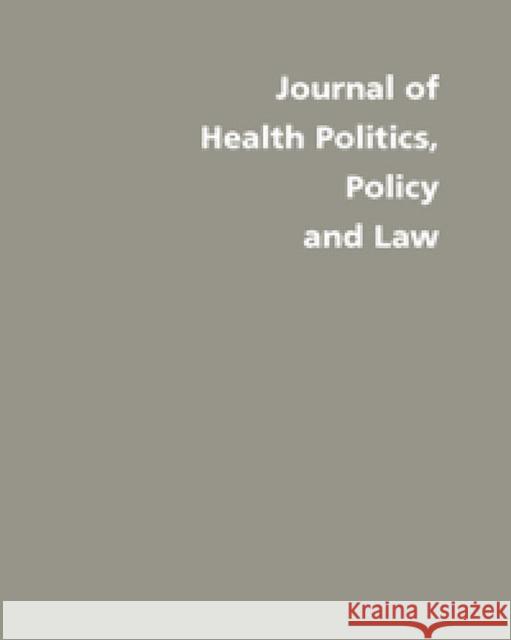Journal of Health Politics, Policy and Law, Medicare Intentions, Effects, and Politics » książka
Journal of Health Politics, Policy and Law, Medicare Intentions, Effects, and Politics
ISBN-13: 9780822364894 / Angielski / Miękka / 2001 / 189 str.
At a time when Medicare stands at the forefront of national politics, Medicare: Intentions, Effects, and Politics moves past the political rhetoric of the moment to provide a groundwork for informed debate. This special issue of the Journal of Health Politics, Policy, and Law offers a historically-based exploration and understanding of Medicare as well as needed perspectives for intelligent reform. This issue provides a complete understanding of the particular and peculiar structure of Medicare that can be gained only by considering the ideas, politics, and institutions of the 1960s that shaped it. With this historical perspective, the articles in this collection can move beyond partisan arguments and politically motivated reform proposals. Instead, they outline educated guidelines for improving Medicare and debunk commonly held assumptions about the program. In How Not to Think about Medicare the field's most noted scholar, Theodore Marmor, exposes four such misconceptions, including the program's seeming inability to control costs and ward off what some call a fiscal tsunami - the aging of the baby boomers. While the program is known for its universal health coverage for the elderly and the disabled, for instance, Medicare also serves a crucial role in overseeing hospital performance and furthering health education. This special issue concludes with a discussion of Marmor's recently revised classic book, The Politics of Medicare, by five leading specialists who interpret the present Medicare program in light of its original construct and current political influences.











